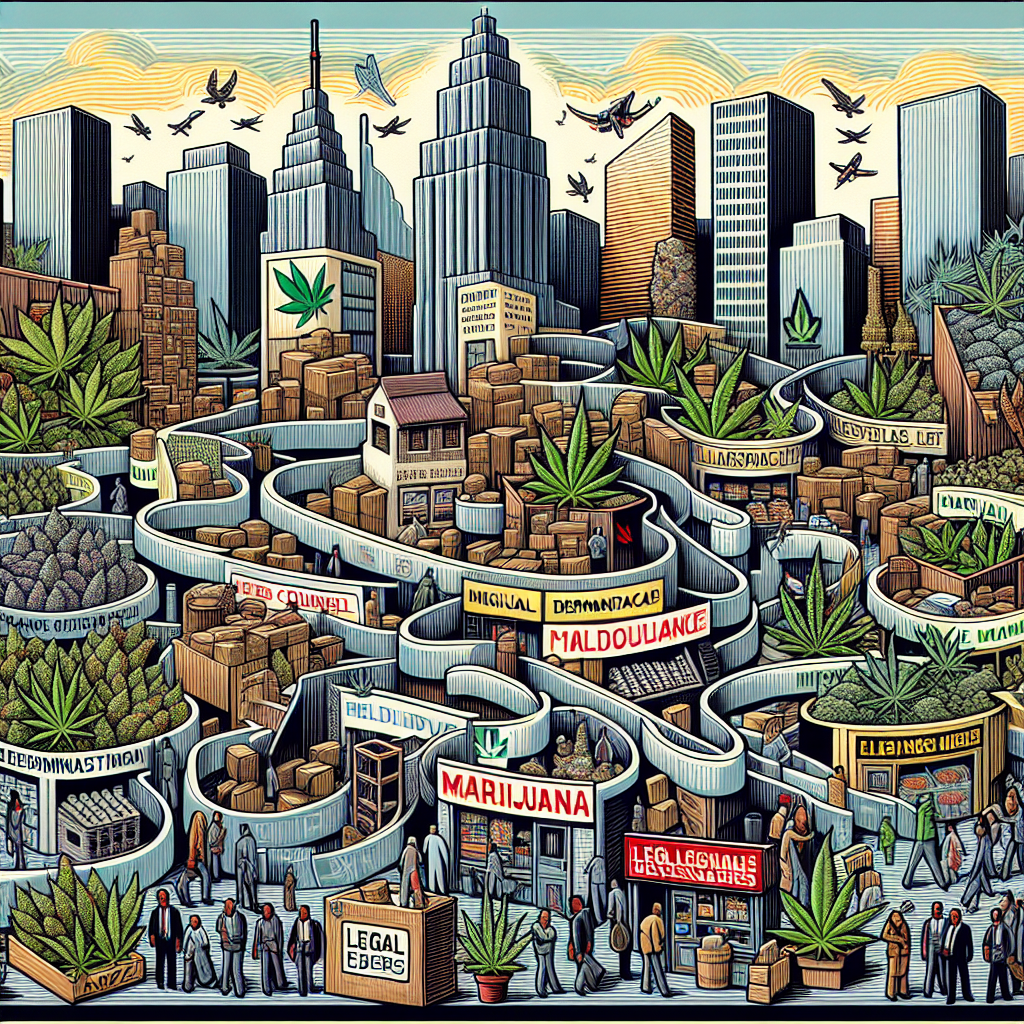
Navigating New York’s Marijuana Maze: From Regulation to Reinvention
Navigating New York’s Marijuana Maze: From Regulation to Reinvention
New York City’s marijuana scene is a complex interplay of legal, illegal, and in-between status dispensaries, consistently altering the dynamics of community safety, economic opportunities, and legalities within the industry. This blog post explores the intricacies of New York’s marijuana laws and its impact on both consumers and businesses, referencing several recent changes and court decisions.
A recent ruling by a New York State judge has put a spotlight on what appears to be an ongoing issue within the city’s attempt to regulate its burgeoning marijuana market. On August 15, 2024, The New York Times reported that a judge ordered the reopening of a Queens convenience store which had been closed by authorities for allegedly selling cannabis without a license. This case may significantly impact the city’s efforts to control the proliferation of unlicensed marijuana sales.
The crackdown on unlicensed marijuana dispensaries has been robust, with Sheriff Miranda leading what’s been dubbed ‘Operation Padlock’. The operation has been aggressive, aiming to shutter illegal operations that complicate the landscape of a legal market struggling to find its footing. According to the Green Market Report, this has led to numerous closures, but also criticisms of procedural missteps. The judge’s decision pointed out a flouting of due process, where the closure of operations was based on shaky legal grounds, revealing a potential hurried enforcement approach that could be subject to legal reversals.
Amidst this regulatory tumult, the emergence of legal dispensaries offers a stark contrast. CNBC’s coverage from earlier in the year highlighted the slow but growing presence of legal retailers designed to service the demand in a regulated environment. These stores aim to transform weed purchasing into a boutique experience, despite the chaos of the legal landscape they inhabit. This includes high-end establishments that integrate cannabis retail into broader lifestyle branding, targeting consumers looking for reliability and quality assurance in their cannabis products.
However, the number of legal dispensaries remains woefully insufficient to meet consumer demand. As of now, New York has licensed a scant fraction of the dispensaries needed to effectively service the market. This bottleneck has not only fueled the growth of the black market but has also led to significant lost tax revenue and continued legal ambiguities regarding enforcement and compliance.
The situation with illegal dispensaries remains volatile. The AP reported in May 2024 that over 600 illegal dispensaries had been shut down, yet an estimated 3,000 still operate. This underscores a critical challenge; while the state can impose regulations, enforcing them consistently and fairly remains an ongoing issue, complicated by legal challenges and the city’s patchwork approach to closures.
Ultimately, New York’s cannabis industry sits at a crossroads between potential and problem. Legal hurdles, enforcement challenges, and market demands create a dynamic but unstable economic landscape. For consumers, the fluctuation between legality and illegality means a persistent uncertainty about where to purchase and what the quality of their products will be.
For policymakers, the ongoing challenges present a significant test of the state’s ability to regulate its markets effectively without overstepping legal boundaries or stifling economic opportunities. As the situation continues to develop, all eyes will be on New York to see how it navigates these complex waters and sets precedents that could influence broader national policies on cannabis regulation.

